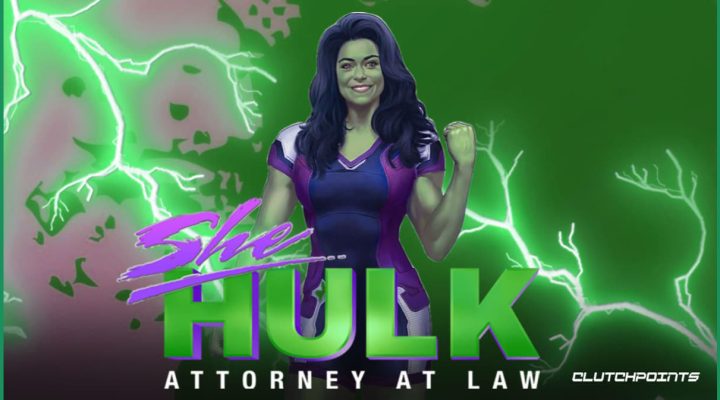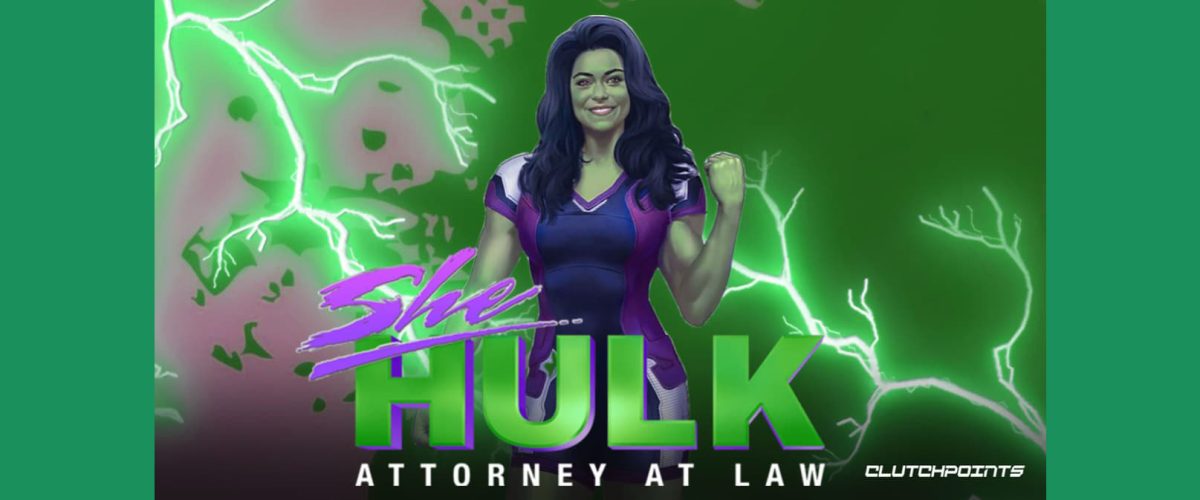When Iron Man, the first installment in the Marvel Cinematic Universe, was released in 2008, my husband and I went to see it on one of our weekly date nights. We were obviously out of ideas for activities that would interest us both. I never had picked up a comic book of any kind. Even so, the movie was surprisingly entertaining, and I have (more willingly) seen almost every MCU offering since.
At first Marvel movies mainly focused on white men with extreme wealth (Iron Man), superhuman strength (Thor and Hulk) or special powers (Captain America). The MCU has thankfully diversified, though, and its latest gift finally provided a character who felt relatable to me.

Laura Stephens-Reed
She-Hulk: Attorney at Law is a nine-episode series on Disney+. Tatiana Maslany stars as Jen Walters, a lawyer who becomes a Hulk when some of her cousin Bruce Banner/Hulk’s blood mingles with hers as the result of a car accident. This show is less about a petite woman learning how and when to Hulk smash, though. It’s about her efforts to do her job well and be taken seriously by her peers and the public.
My first clue that this would be a different kind of Marvel fare came in episode one. The Hulk is attempting to train the as-yet-unmonikered She-Hulk. Banner is notorious for “Hulking out” and destroying everything within reach when he becomes angry, and he tells Jen that she, too, will need to learn to control her rage.
She replies, “Here’s the thing, Bruce. I’m great at controlling my anger. I do it all the time. When I’m cat-called in the street. When incompetent men explain my own area of expertise to me. I do it pretty much every day, because if I don’t, I will be called emotional or difficult or might just literally get murdered. So, I’m an expert at controlling my anger because I do it infinitely more than you!”
That story checks out.
“Being the female version of the normative male follows her into her professional life.”
As the show progresses, it becomes a lighthearted but no less real peek into the lives of women, particularly professional women. The superhero name Jen is given by the media, She-Hulk, is derivative of the male Hulk. Being the female version of the normative male follows her into her professional life when she and several of her peers are awarded the designation Female Lawyer of the Year. (The winners are arrayed on stage as if in a beauty contest and asked by the emcee what it is like to be the Female Lawyer of the Year, a question that sounds like one that might be put to contestants in a pageant.)
In her work life, Jen can’t win. She is fired from her job at the district attorney’s office for being a distraction after She-Hulk fights a villain in the courtroom. She is then hired by a firm as a novelty and instructed only to come to work as She-Hulk. In her personal life, Jen strikes out on a dating app only to have her inbox blow up once she creates a profile for She-Hulk. It is clear from the resulting dates she goes on that the men fetishize her Hulked-out body and are otherwise uninterested in Jen the person. Jen/She-Hulk’s personal life overlaps with her professional life when she is forced to use these terrible dates as legal proof that she has a rightful claim to the name She-Hulk.
 These aren’t the only quandaries Jen/She-Hulk faces. There is the constant critique of her clothes. She can only wear men’s suits, because no one manufactures professional wear for a woman of She-Hulk’s stature. She is targeted online by detractors to the point of death threats. She-Hulk is largely unbothered by these messages — after all, the likelihood of physical harm is negligible in her invulnerable state — until the online malevolents fill the big screen behind the Female Lawyer of the Year recipients with some very personal, illegally obtained images.
These aren’t the only quandaries Jen/She-Hulk faces. There is the constant critique of her clothes. She can only wear men’s suits, because no one manufactures professional wear for a woman of She-Hulk’s stature. She is targeted online by detractors to the point of death threats. She-Hulk is largely unbothered by these messages — after all, the likelihood of physical harm is negligible in her invulnerable state — until the online malevolents fill the big screen behind the Female Lawyer of the Year recipients with some very personal, illegally obtained images.
While many professional women might relate to Jen/She-Hulk, as a clergywoman I winced at every slight Jen endured. Clergywomen are mansplained often, whether by pastoral peers or by people in their congregations, and we have learned to respond using a limited emotional range in order to be heard. We are harassed and must make hard choices between exposing our abusers or keeping our positions.
We are called “lady ministers” or even “little pastors” instead of the actual titles that have been conferred upon us. We are told some churches aren’t ready for our leadership because our physical presence diverts attention from the gospel message while other congregations call us just so they can pat themselves on the back for having a woman in the pulpit.
“Our choices of clothes, shoes, hairstyle and accessories can become near obsessions with parishioners.”
Our personal lives become fodder for public conversations, whether people talk about whom we’re dating or how we’re raising our children. Our choices of clothes, shoes, hairstyle and accessories can become near obsessions with parishioners, either because that’s all they see or because they are looking for a way to prove we shouldn’t be taken seriously (red nail polish on a woman of God?!).
The very fact of our right to exist and to serve is regularly debated on social media. All this gets in the way of clergywomen living into the fullness of their calls and of churches benefitting from all these leaders have to offer.
I have the privilege of coaching a number of clergywomen and of being acquainted with many others. They are gifted, faithful, innovative, smart and compassionate leaders. I hope your church has either experienced this firsthand or will soon get the opportunity.
Here’s what you can do to support clergywomen:
Get to know them. We are in ministry because we love God, God’s people and Christ’s church. We’d love to tell you what we’re passionate about in ministry and to hear your stories and interests.
Call them “pastor.” This is in a literal sense (in other words, avoid diminutive and derivative terms) and in a very practical sense. Listen to our sermons. Receive the pastoral care we are eager to offer. Wonder and dream alongside us about what might be possible with God’s help.
Celebrate the range of perspectives and gifts they offer. Yes, we will probably preach in a different register than your last pastor. We might lead with a different style. These are good things. It takes all of us together to live into the full image of God in which we were made.
Respect their personal lives. On the one hand, this means allowing us our time away rather than assuming we are always available. (Please do this for any pastor.) On the other hand, please give us room to initiate and develop relationships of all kinds outside the bounds of our pastoral roles. We are people as well as pastors.
Refrain from making comments to or about them that you’d deem inappropriate for a pastor who happens to be male. A good test is, “Would I say this about/to Pastor (insert name of a current or former male leader of your congregation)?” Clergywomen often are asked questions or talked about with regard to fashion, weight, childbearing and childcare in ways men are not.
In the She-Hulk finale, Jen breaks the fourth wall to confront K.E.V.I.N., the AI version of the current architect of the MCU. Jen/She-Hulk doesn’t like how the finale is reducing her to a minor character in her own story, so she demands agency and some attention to the emotional stakes.
That’s what we as clergywomen want as well — to be seen and valued for who we are and what we bring to the role of pastor. When you bless us with your trust, I trust that you, too, will be blessed by our leadership.
Laura Stephens-Reed has been in ministry for 20 years, serving in a variety of roles and contexts. Her ministry now consists of coaching clergy and congregations through all kinds of transitions with faithfulness and curiosity. Laura is based in Northport, Ala., but she works with pastors and churches all over North America and across 17 denominations.
Related articles:
What I learned by listening to women pastors during the pandemic | Opinion by Susan Shaw
If you’re glad women were the first Easter preachers, what are you doing about it now? | Opinion by Meredith Stone


